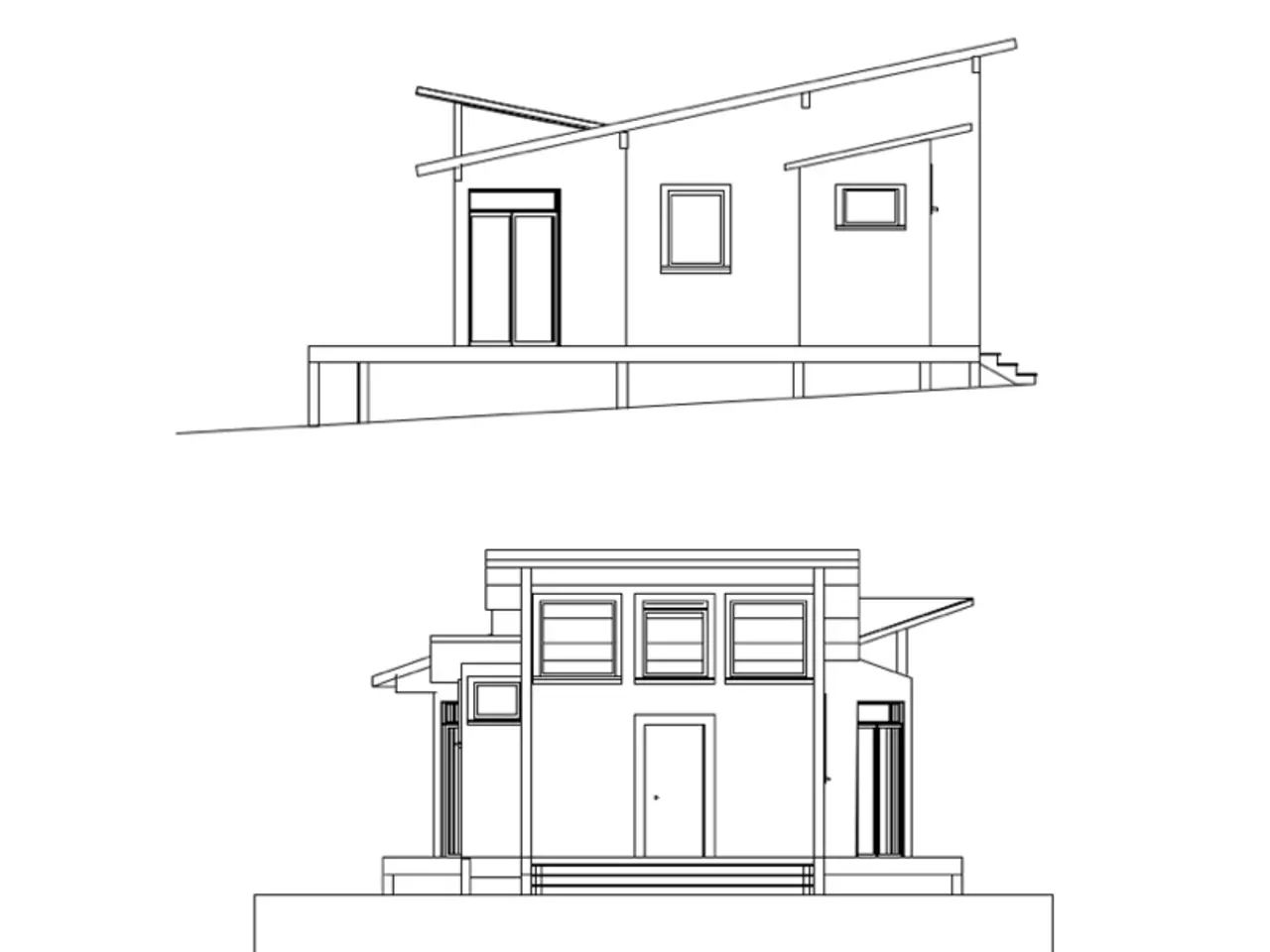Building Loan Expansion: navigating the process when mortgage terms conclude
In the current climate of rising interest rates for real estate loans in Germany, homeowners face a crucial decision when their construction loan is about to expire: extending or rescheduling. Each option comes with its own advantages and disadvantages that should be carefully considered.
Extending Construction Loans
Extending a construction loan generally means prolonging the existing loan term under the current agreement. This option has several advantages: it is usually a simpler, faster process as it keeps the original terms mostly intact, allowing the borrower to avoid immediate refinancing costs or renegotiations. Moreover, extending the loan may maintain existing interest rates if fixed, which can be beneficial in a rising rate context.
However, extending a loan may lead to higher total interest paid due to the longer loan duration. Additionally, obtaining lender approval can become more challenging if credit conditions tighten. Furthermore, the extended loan may not adjust well to the borrower’s changed payment capacity or market conditions.
Rescheduling Construction Loans
Rescheduling, on the other hand, involves changing the loan terms such as installment amounts, payment dates, or adding new collateral. This option offers flexibility to adjust repayment schedules matching new cash flows and enables restructuring collateral or loan covenants, potentially improving lender comfort. Rescheduling can also help avoid default if a borrower's financial situation changes.
However, rescheduling can be complex and time-consuming, involving legal and administrative costs. It may trigger additional fees, including stamp duty or restructuring costs (though exemptions may apply in specific jurisdictions or periods). New terms might include higher interest rates reflecting market increases or additional collateral requirements.
Considerations for Germany and the Current Environment
In the current environment of rising interest rates, extending a loan without changing interest terms can protect a borrower from immediate rate hikes if the loan has a fixed rate. However, the longer period can increase exposure to future rate volatility once the fixed rate expires. Rescheduling can provide crucial breathing room to adjust repayments according to project delays or increased costs from higher rates, but may lead to higher interest payments if lenders apply current market rates or require additional security.
Recent restructuring frameworks have extended tax exemptions such as stamp duty relief on loan restructuring or rescheduling agreements, potentially reducing some costs associated with rescheduling. This can make rescheduling more attractive currently in a rising rate environment, helping to mitigate upfront cost burdens.
Making an Informed Decision
When deciding on follow-up financing, it is crucial to consider all these factors. Direct comparison with the current situation is helpful in making a decision. Borrowers have the option to cancel the current loan contract after just ten years and take out follow-up financing with another bank, paying off the remaining loan amount in one sum.
Dealing with various options for construction financing early allows for a good solution to be found for follow-up financing. In today's time, it is particularly easy to search for alternatives to extension and save money, as a loan application can be submitted online. Using a follow-up financing calculator can help in comparing the impact of various options on factors like monthly installments or term.
It is advisable to start considering alternatives for construction financing one to two years before the end of the real estate loan. Monthly installments may increase or the term of the loan may be extended with follow-up financing. With extension, the construction financing is extended, but the interest rate and the term of the credit interest binding change.
In conclusion, the choice between extending and rescheduling depends on the borrower’s current financial flexibility, lender conditions, and project timelines. Extending is often less complex and keeps original terms but may risk higher future costs, while rescheduling allows comprehensive adjustment to changed financial or market conditions but can involve more complexity and possible higher immediate costs due to rising interest rates and collateral requirements.
- In the context of a borrower reconsidering their construction loan terms, choosing to extend the loan might maintain existing interest rates and offer a simpler, faster process, but it may also result in higher total interest paid over the extended period, and the approval process could become more challenging if credit conditions tighten.
- Alternatively, rescheduling the construction loan could provide the flexibility to adjust repayment schedules and potentially improve lender comfort, but it may entail complex and time-consuming procedures, legal and administrative costs, and higher interest rates to reflect market increases or additional collateral requirements.




